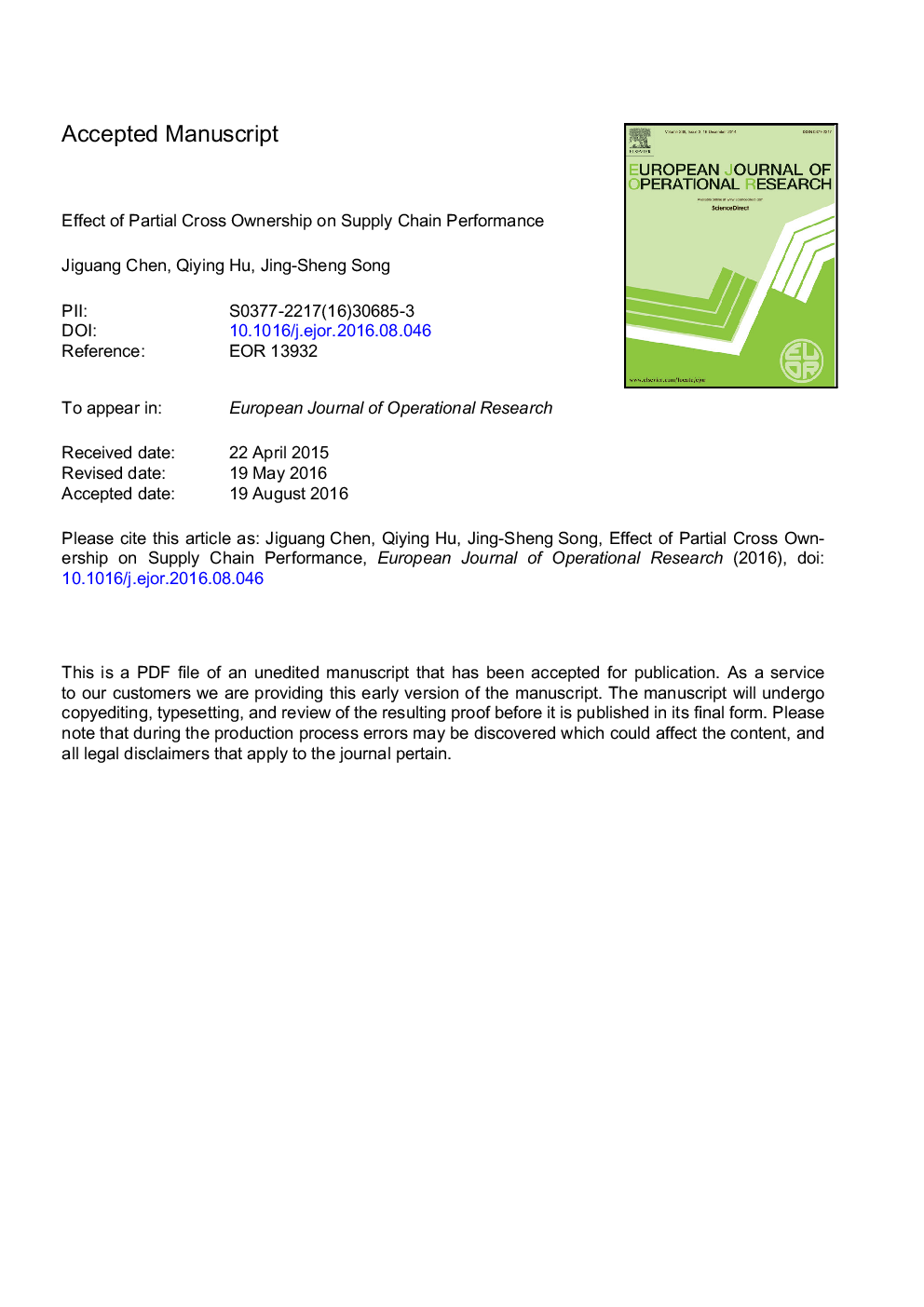| Article ID | Journal | Published Year | Pages | File Type |
|---|---|---|---|---|
| 4959993 | European Journal of Operational Research | 2017 | 35 Pages |
Abstract
Partial cross ownership (PCO) in a dyad supply chain refers to a situation where each firm holds a portion of its partner's shares. We study this topic in push and pull supply chains, and prove that neither the supply chain's nor any member's profit changes with the percentage of the leader's shares the follower holds. However, while the profits of the chain and the leader increase with the percentage of the follower's shares held by the leader, the follower's profit does not necessarily increase or decrease. As a result, both partners can always achieve a win-win by setting a proper price for transferring the follower's shares to the leader. Moreover, the equilibrium wholesale price may be greater than the retail price in the push chain, but less than the marginal production cost in the pull chain, contradicting the usual results found in the literature. We also derive a necessary and sufficient condition on the structure of PCO allowing a pull chain to perform better than a push one. This extends Cachon (2004)'s result that a pull chain always performs better than a push one (without PCO). Finally, PCO can coordinate a chain if and only if each one holds half of the other's shares.
Related Topics
Physical Sciences and Engineering
Computer Science
Computer Science (General)
Authors
Jiguang Chen, Qiying Hu, Jing-Sheng Song,
